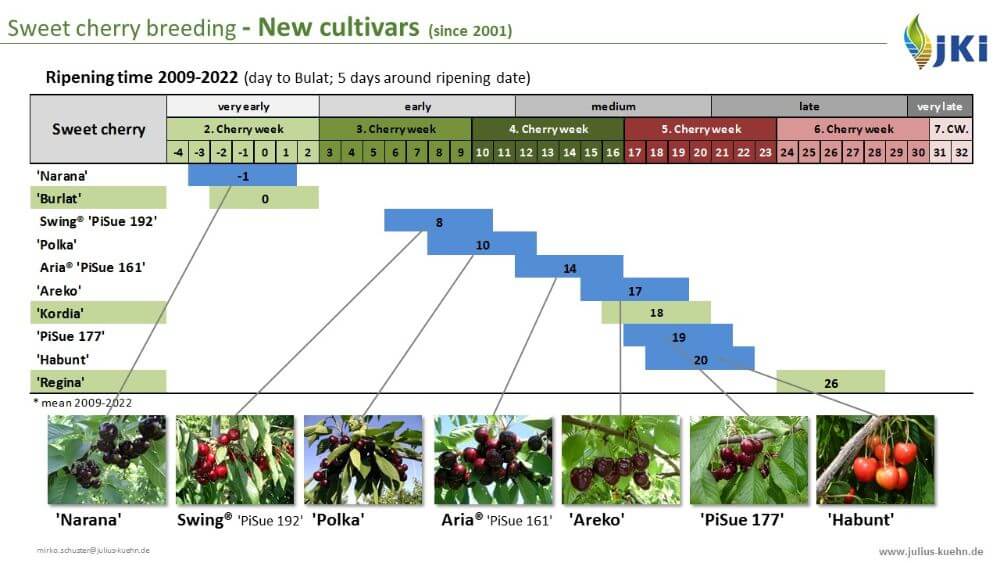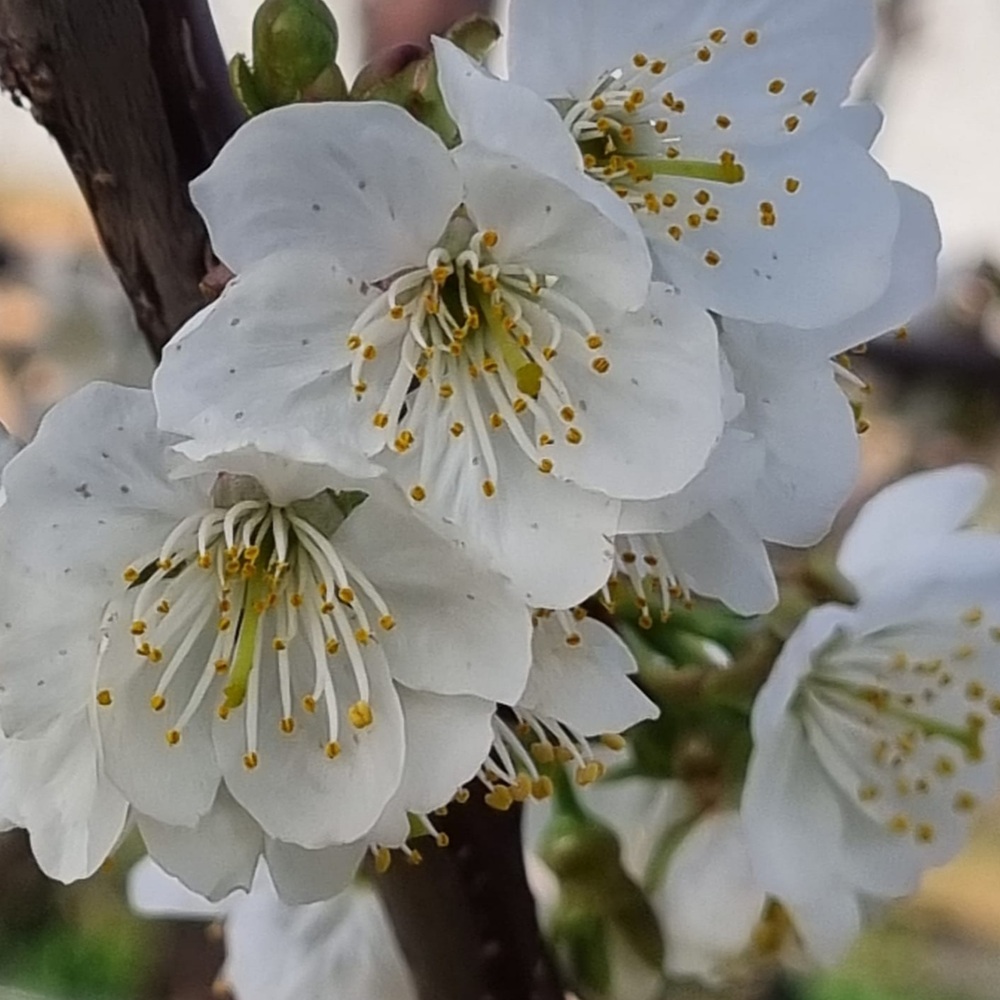The cherry harvest in the northern hemisphere had a promising start, advancing by 10-15 days compared to previous years in some European countries. This early start also led to an early conclusion of the season for some varieties. In Spain, major cherry producers and exporters, prospects for this year have improved compared to last year, when rains had damaged the crops.
The picota variety, typical of the Jerte Valley in Spain and highly valued in local and export markets, begins harvesting in mid-June.
In Puglia, the cherry season, which began in April, saw a decline in yields of up to 60% due to a mild winter that did not meet the plants' cold requirements, forcing producers to end sales about 20 days early.
In Germany, the increase in local and imported cherry supply, mainly from Turkey, Spain, and Greece, has led to a decrease in prices for some traders. Cherries grown under cover in southern Germany seem to have withstood recent rains well. Hungary also had a good season with stable demand and prices.
France faced a difficult start due to rains, but the situation reversed with an abundant supply of cherries and reduced demand. In the Netherlands, excessive rains caused severe losses with many dead plants and reduced volumes, though prices remained high. In the United Kingdom, yields are expected to be 65-70% of a normal season due to poor fruit set.
In North America, cherry harvesting shifted from California to Washington for export, with cooler weather slowing fruit growth in California. In South Africa, a late winter delayed the accumulation of necessary cold for the new season. In Chile, growers are closely watching developments in Spain and Europe to learn from new varieties.
Spain: early harvest and market challenges
In Spain, the harvest of the picota variety, native to the Jerte Valley, begins in mid-June. This variety is in high demand both domestically and for export. However, a major issue is the illegal sale of cherries without stems as Jerte picota, which can only be marketed from mid-June.
There is expected to be strong demand for Turkish cherries due to product shortages in various countries. However, climate change and rising production costs still pose significant challenges.
Turkey: high demand anticipated
The Turkish cherry season looks promising with good yields and quality. Turkish exporters face varying competition depending on the market. There is expected to be strong demand for Turkish cherries due to product shortages in several countries, despite climate challenges and rising production costs.
Italy: yield decline in Puglia
In Puglia, the cherry season saw yields decline by up to 60% due to a mild winter. Harvest ended about 20 days early. Despite lower quantities, fruit quality was higher, with excellent sizes and flavor.
Germany: price reduction due to increased supply
Increased local and import cherry supply led to price reductions in Germany. Cherries grown under cover in the southern part of the country withstood recent rains well. Competition from Eastern Europe, especially Moldova, increased pressure on German producers.
Moldova: promising season
In Moldova, the cherry campaign looks positive with increased exports to Europe thanks to certifications obtained and infrastructure improvements.
Hungary: favorable harvest
The cherry season in Hungary has been positive with adequate volumes and stable demand in both local and European markets. Harvest will conclude within a few days.
France: challenging start followed by abundance
The cherry season in France had a difficult start due to rains, but the situation reversed with an abundant supply of cherries and reduced demand. However, demand increased in recent days and prices rose.
Netherlands: weather-related issues
In the Netherlands, adverse weather caused severe losses with many trees dead and reduced volumes. However, cherry prices remained high, especially for high-quality fruit.
United Kingdom: below-normal yield
In the United Kingdom, the cherry season was compromised by poor fruit set and inadequate temperatures during flowering, resulting in a yield of 65-70% compared to normal.
North America: transition between California and Washington
In North America, cherry harvesting transitioned from California to Washington. Colder weather slowed fruit growth in California, affecting export volumes.
South Africa: delays due to late winter
In South Africa, a late winter delayed the accumulation of necessary cold for the cherry season. Production saw a slight decline compared to the previous year.
Chile: focus on European markets
In Chile, cherry trees are in winter dormancy while growers closely monitor developments of new varieties in Spain and Europe for insights. The 2023/24 season could have exceeded expectations if not for early rains.
Source: FreshPlaza
Image: Pixabay
Cherry Times - All rights reserved










